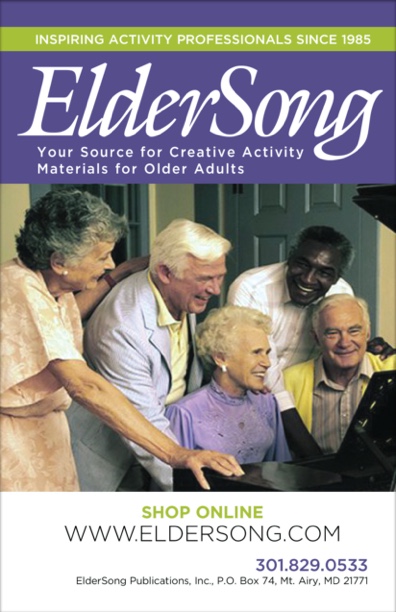As summer comes to an end, Americans get ready to celebrate Labor Day, the first Monday in September. As you plan the last picnic of the season, it’s a good time to ponder the importance of work and jobs. Adults spend much of their life at work, and America’s working men and women merit a tribute. Your group of older adults knows the meaning of hard work and sacrifice. What kinds of jobs and careers have they held during their lifetime? What contributions to the American workforce did they make after World War II and beyond? Here are some reminiscing activities that will help you honor these special workers and their everyday jobs.
- Reminisce about household chores and responsibilities. Ask: What did your parents teach you about work? What kind of chores or tasks did you have as a child/teen – e.g., shovel snow, cut grass, wash dishes? Did you receive an allowance?
- Share recollections about participants’ first paid job outside the home, including memories of bosses, duties, pay, hours, co-workers. List common jobs for 1940s teenagers, e.g., bus boy in a restaurant, locker room attendant at the YMCA, soda jerk, usher in movie theatre, paper boy.
- Listen to the old Disney tune, “Whistle While You Work.” Ask: Did you ever have an unpleasant or boring task/ job? What did you learn about the importance of attitude?
- Discuss the differences between a job, a career, and a vocation. Ask: Was your work a job, a career, or a calling? What determines the level of satisfaction you get from your job? How can you find meaning from work – even routine?
- Encourage participants to describe their work ethic. Ask: How much did you value the following: commitment, responsibility, respect, punctuality, loyalty, cooperation, teamwork? Did other members of your generation share these work values? Where did you learn them? Did these values help you achieve the American Dream?
- Define white-collar and blue-collar workers. Name some workers in white-collar and blue-collar occupations during the 1940s and 1950s. Ask: What are the benefits of being a blue-collar laborer, e.g., assigned shift, leave work at workplace, etc.?
- Ask the ladies if any had a career as a homemaker. Write a job description for the position! Ask: Which household jobs did you enjoy the most? The least?
- Read Walt Whitman’s poem “I Hear America Singing,” which honors workers.
- Display a Rosie the Riveter poster from World War II. Discuss how the war changed attitudes about women in the workplace. Name some traditional jobs/occupations for women, e.g., teachers, secretaries, nurses, childcare, hairdressers. Ask why women are often drawn to these occupations.
- Reminisce about the 1944 GI Bill which provided job training and college education assistance to returning veterans. Ask: What kinds of job training have you received – vocational classes, apprenticeship, trade school, mentoring?
- Name some jobs from mid-20th century America that have become obsolete. Examples: elevator operator, soda jerk, milkman, gas station attendant, telephone operator, stenographer. Share old photographs if they are available. Or, display some vintage uniforms or hats.
- Ask participants if their work ever included moonlighting around a full-time job. Ask: What are some typical second jobs, e.g., taxi driver or waitress? Did you ever start a small business on the side, like photography?
- Share memories of family businesses or trades. Ask participants if there was a tradition in their family for a certain kind of work, e.g., carpentry trade or family farm. Invite a tradesman to talk about mastering a trade or craft.
- Discuss the meaning of the phrase “Jack of all trades, master of none.” Ask if anyone in the group had a handyman business or did odd jobs. Reminisce about 1950s suburban homeowners and their “do-it-yourself” home improvement projects. Ask: What kinds of remodeling or home-repair projects have you done? Pass around copies of old Better Homes and Gardens magazines.
- Honor American workers on Labor Day, the first Monday in September. Hold a design contest for a Labor Day parade float.
WORKING TRIVIA QUIZ
Remember the adage “An honest day’s work for an honest day’s pay”? Help participants celebrate their working days with a trivia quiz.
- What is the graveyard shift? When workers are on duty while most people sleep, usually 11:00 p.m. to 7:00 a.m.
- What is a pink-collar worker? A person who works in the beauty industry, usually a woman
- What do we call a worker who oversees a construction project? Foreman
- What are you doing if you are moonlighting? Working a second job
- If you are a member of the Teamsters, you have joined a what? Labor union
- A beginner learning a trade is called what? An apprentice
- Finish this idiom: All work and no play… Makes Jack a dull boy.
- During his or her career, a college professor often takes a leave of absence known as a what? Sabbatical
- Who would use these tools: horseshoe, anvil, forceps, bellows? Blacksmith
- What do Avon ladies sell? Cosmetics
“WORKING PEOPLE” written by Sue Hansen. © 2008 ElderSong Publications, Inc. All rights reserved.
Reprint Policy: To reprint or republish all or portions of this entry, you must acquire written permission and agree to link back to the original source. Please contact us at [email protected] to obtain permission.


